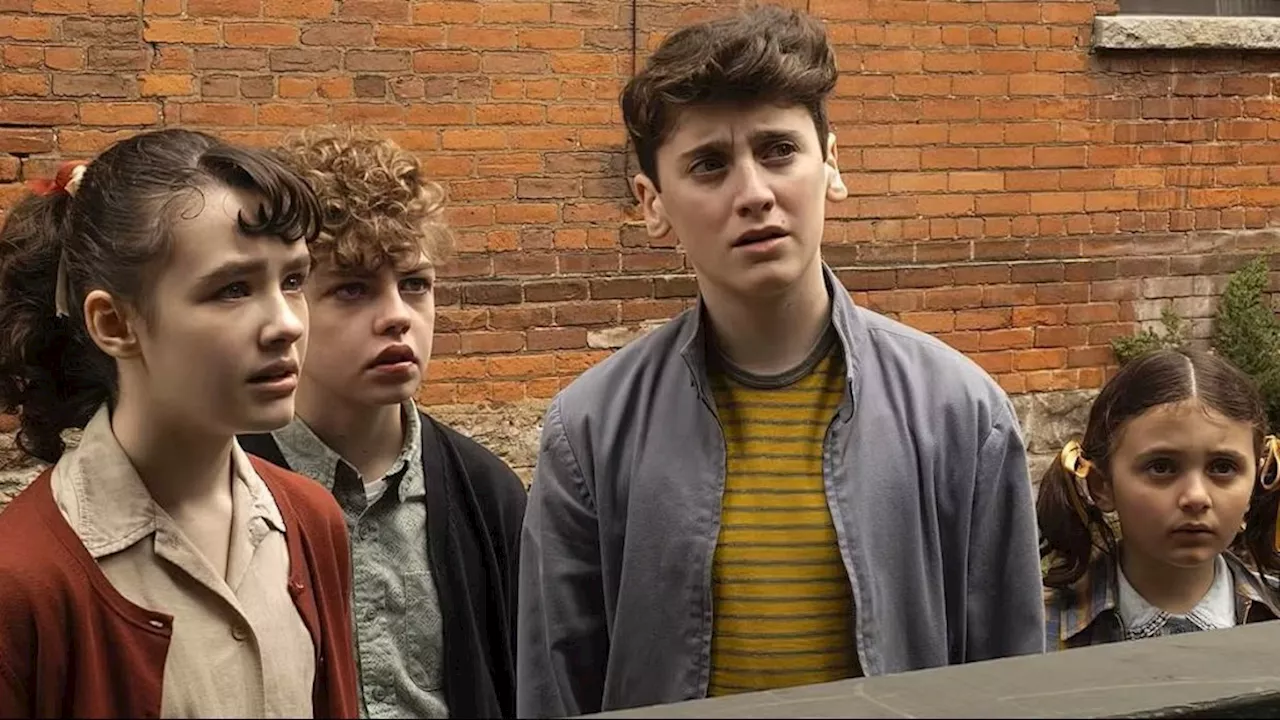Entertainment
Stephen King’s ‘The Shining’ Miniseries Now Streaming on Hulu

The 1997 miniseries adaptation of Stephen King’s *The Shining* is now available for streaming on Hulu. This version, which King himself wrote and produced, offers a distinct interpretation of the iconic horror story that diverges significantly from Stanley Kubrick’s 1980 film. King’s adaptation provides audiences with his intended vision, focusing on themes of love, addiction, and the tragic elements of the narrative.
King’s Perspective on Kubrick’s Vision
Stanley Kubrick’s *The Shining* is often hailed as a landmark in horror cinema, renowned for its chilling atmosphere and psychological depth. Yet, for King, the film represented a profound misunderstanding of his original work. He famously criticized Kubrick’s take, describing it as “a big, beautiful Cadillac without an engine.” King felt that the film stripped away the emotional core of the novel, which portrays Jack Torrance as a flawed yet sympathetic character struggling against the malevolent influence of the Overlook Hotel and his own demons.
In contrast, Kubrick’s depiction presents Jack as a man on the brink of insanity from the outset, lacking the internal conflict that defines King’s character. This fundamental difference compelled King to create a miniseries that more faithfully reflects his narrative and emotional intent.
A Second Chance for the Story
Directed by Mick Garris, the 1997 miniseries aired on ABC and featured a cast that included Steven Weber as Jack Torrance, Rebecca De Mornay as Wendy, and Courtland Mead as Danny. While it may not have enjoyed the same prestige as Kubrick’s film, the miniseries became a rare opportunity for King to shape his story on screen, providing a more intimate portrayal of the characters and their struggles.
The miniseries emphasizes character development and emotional resonance, allowing viewers to witness Jack’s gradual descent into madness as a heartbreaking journey rather than an inevitable fate. King’s personal experiences with addiction inform the narrative, making the Overlook Hotel not just a haunted location, but a metaphor for the insidious nature of addiction and familial strife.
Despite its flaws, including the limitations of late-1990s television production values, the miniseries offers a raw and earnest depiction of the story. Critics have noted that its imperfections create a sense of authenticity that contrasts sharply with Kubrick’s polished aesthetic. The pacing may sometimes falter, but this irregularity contributes to the emotional weight of the narrative, making it feel more immediate and relatable.
King’s adaptation and Kubrick’s film are not in direct competition; rather, they exist in a dialogue about storytelling. While Kubrick’s version presents *The Shining* as an exploration of madness devoid of hope, King’s miniseries frames it as a tragedy rooted in love and loss. Both interpretations echo the complexities of the original narrative, highlighting how different artistic visions can evoke varied responses from audiences.
Streaming the miniseries today allows viewers to engage with King’s vision while reflecting on the lasting impact of both adaptations. As Hollywood continues to grapple with issues of authorship and adaptation, King’s *The Shining* miniseries serves as a significant reminder of the power of storytelling and the importance of staying true to one’s narrative.
By reclaiming his story, King invites audiences to explore the depths of the Overlook Hotel through a lens of personal experience and emotional truth, making this adaptation a relevant and meaningful entry in the ongoing conversation about literary adaptations in film and television.
-

 Science2 weeks ago
Science2 weeks agoIROS 2025 to Showcase Cutting-Edge Robotics Innovations in China
-

 Politics2 weeks ago
Politics2 weeks agoJudge Considers Dismissal of Chelsea Housing Case Citing AI Flaws
-

 World2 weeks ago
World2 weeks agoBravo Company Veterans Honored with Bronze Medals After 56 Years
-

 Lifestyle2 weeks ago
Lifestyle2 weeks agoStone Island’s Logo Worn by Extremists Sparks Brand Dilemma
-

 Top Stories2 weeks ago
Top Stories2 weeks agoIndonesia Suspends 27,000 Bank Accounts in Online Gambling Crackdown
-

 World2 weeks ago
World2 weeks agoHoneywell Predicts Record Demand for Business Jets Over Next Decade
-

 Health2 weeks ago
Health2 weeks agoStartup Liberate Bio Secures $31 Million for Next-Gen Therapies
-

 Sports2 weeks ago
Sports2 weeks agoMel Kiper Jr. Reveals Top 25 Prospects for 2026 NFL Draft
-

 Health2 weeks ago
Health2 weeks agoTop Hyaluronic Acid Serums for Radiant Skin in 2025
-

 Politics2 weeks ago
Politics2 weeks agoNew Jersey Voters Urged to Register Ahead of November Election
-

 Sports2 weeks ago
Sports2 weeks agoYamamoto’s Mastery Leads Dodgers to 5-1 Victory in NLCS Game 2
-

 Lifestyle2 weeks ago
Lifestyle2 weeks agoMary Morgan Jackson Crowned Little Miss National Peanut Festival 2025







